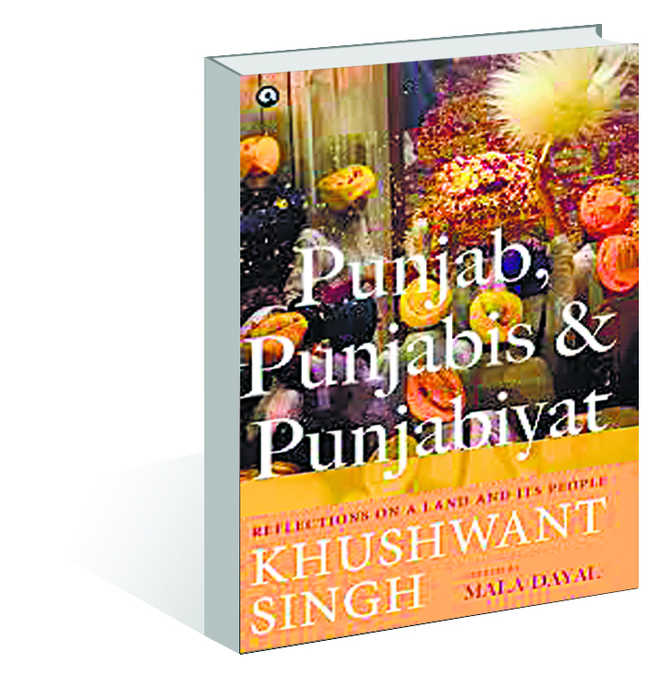Roopinder Singh
Khushwant Singh was a prolific writer and, going by the number of his books released in the market, he continues to be one even four years after his death. The recently released anthology, edited by his daughter, Mala Dayal, is the latest offering by the author’s estate.
Khushwant saw Punjab in a broader sense, and not something that has been truncated multiple times. His knowledge of the vastness of the land and his catholicity of thought allowed him to transcend narrow barriers erected by politicians and bigots. It is this sense of Punjab that comes through while reading the book.
Hadali, where he was born, is now in Pakistan. It would long have been swept by the sands of time had it not been for this illustrious son, who even more than his forefathers, brought fame to the small village. Khushwant’s account of his childhood in Hadali shows how well the family had done by the time India became independent. It was, however, in Delhi where the family’s fortunes bloomed.
Just before the Partition, Khushwant and his family moved from Lahore, where he was a lawyer, to the new national Capital. He was quite unlike other refugees — his father owned vast amounts of real estate and was a well-known pillar of Lutyen's Delhi.
A disciplined man, Khushwant managed his time well — waking up at the crack of dawn to write. He was famous for not meeting people without an appointment, and also for sticking to his schedule, even for bedtime when guests were at home. He was a gracious host, and most eminent visitors to Delhi sought him avidly. He often wrote about them, and his columns were most widely read.
The verve, complicated history and personalities of Punjabis make for a difficult academic study, but this collection of vignettes strings together his writing. Through them, we visit his village, learn a bit more about his parents, and about Punjab on both sides of the border. A man of strong likes and dislikes and a professed agnostic, Khushwant identified with the religion of his birth. He was the brave journalist who routinely derided Jarnail Singh Bhindranwale, condemned the storming of the Golden Temple unequivocally and, to protest the action, returned his government honours, all through writing, giving his reactions and explaining his actions.
What we have is vintage Khushwant, evocative, incisive and with some malice. The three sections: Punjab and Punjabiyat; My Bleeding Punjab and Punjabis are well put together. His pen sketches of Ranjit Singh, Baba Kharak Singh, Giani Zail Singh and his mother bring out their personalities. In his hands, history becomes readable, but some of the pieces are dated. Mentioning the time they were penned would have enhanced the value of the book.
Naturally, like others, I have read some of the articles. Some end abruptly, cleaved by the time of their creation, like the chapter about the Namdharis, but there is no better way I would have spent the holiday that comes on the author's ‘imagined birthday’ — curled up on my favourite sofa, with this book, without a handy glass of scotch.
Unlock Exclusive Insights with The Tribune Premium
Take your experience further with Premium access.
Thought-provoking Opinions, Expert Analysis, In-depth Insights and other Member Only Benefits
Already a Member? Sign In Now










